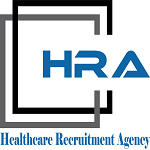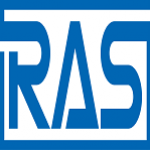Tracheostomy-Trained Nurses
As a trusted partner for organisations striving to meet Care Quality Commission (CQC) and Ofsted standards, CQC Jobs excels in the identification, attraction, and retention of qualified professionals dedicated to delivering exceptional care and education. Our expertise ensures employers consistently achieve and maintain compliance with CQC and Ofsted requirements, supporting high standards across both health and educational settings throughout the UK.
Tracheostomy-Trained Nurses Are Critical to Complex Care
Why Tracheostomy-Trained Nurses Are Critical to Complex Care
Tracheostomy care is one of the most advanced clinical interventions delivered outside hospital settings, supporting adults and children with complex respiratory needs, neuromuscular conditions, spinal injuries, and progressive neurological disorders (NHS England, 2023). A tracheostomy not only assists breathing, but also protects the airway, prevents aspiration, and supports safe swallowing management. However, it requires meticulous, confident, and continuous clinical oversight.
Errors in tracheostomy care can be catastrophic, leading to blocked tubes, unplanned decannulation, respiratory arrest, or even death (National Tracheostomy Safety Project, 2023). Residents with a tracheostomy depend on expert nurses with up-to-date skills, thorough risk assessment ability, and the confidence to intervene in high-pressure situations.
Permanent, tracheostomy-trained nurses are critical for this. Unlike agency staff who may lack familiarity with your residents’ histories or your clinical protocols, permanent nurses build the stable, consistent relationships that complex care clients depend on. They know each patient’s baseline, monitor for subtle clinical changes, and maintain high standards of infection prevention, emergency response, and airway patency.
In addition, the Care Quality Commission (CQC) expects complex care providers to demonstrate safe, consistent staffing through their Key Lines of Enquiry (CQC, 2023). A rotating workforce cannot deliver the robust clinical oversight needed for tracheostomy care. Consistent, permanent teams ensure care plans are respected, protocols followed, and subtle signs of deterioration are caught early.
Regulatory Context and Clinical Safety Requirements
Tracheostomy-trained nurses in the UK must meet multiple compliance standards, including:
✅ NMC registration and current PIN
✅ evidence of tracheostomy competency, often renewed yearly
✅ emergency tracheostomy management training (e.g., blocked tube protocols)
✅ knowledge of infection control best practice
✅ Right to Work and enhanced DBS clearance
✅ safeguarding adult and child level 3 training
✅ adherence to the Health and Social Care Act 2008 (Regulated Activities) Regulations
Temporary staff, however well-intentioned, may struggle to stay current with your site-specific risk assessments and equipment. Only permanent, headhunted, well-screened tracheostomy-trained nurses can consistently maintain:
✅ familiarity with site protocols
✅ consistent handover practices
✅ strong relationships with GPs, respiratory consultants, and MDTs
✅ ownership of tracheostomy equipment logs and emergency drills
This protects you from clinical incidents and supports positive CQC inspection outcomes.
The Human Impact of Permanent Tracheostomy-Trained Nurses
Beyond clinical frameworks, permanent tracheostomy-trained nurses deliver immeasurable benefits for patients, residents, and their families. These include:
✅ Reassurance — families know who is caring for their loved one
✅ Trust — a permanent nurse is familiar with each person’s normal airway patterns
✅ Emotional stability — especially critical in younger or anxious patients
✅ Communication support — including tracheostomy speech valve management
✅ Compassionate consistency — supporting mental wellbeing, not just physical health
According to the Royal College of Nursing (2023), consistent nurse staffing improves outcomes for people with complex needs by over 35%, through better detection of subtle changes, quicker escalation of concerns, and more thorough education of patients and families.
Challenges in Recruiting Tracheostomy-Trained Nurses
Employers across nursing homes, complex care services, and homecare face serious difficulties sourcing permanent tracheostomy-trained nurses.
✅ National nurse shortages: NHS Digital (2023) reports the nursing vacancy rate for adult registered nurses exceeds 10%, even higher in specialist skill areas like tracheostomy care.
✅ Clinical burnout: Many tracheostomy-trained nurses are under pressure, leading to retention challenges.
✅ Agency dependency: Providers often rely on temporary cover, which creates gaps in skills and knowledge.
✅ Higher acuity: People are leaving hospital earlier, with more complex needs, demanding community-based tracheostomy skills.
The combination of these factors has created an urgent need for specialist, proactive, permanent recruitment solutions to stabilise clinical teams.
Why Permanent Recruitment is Essential
While agency nurses can provide stop-gap cover, they cannot deliver:
✅ deep familiarity with residents’ daily airway patterns
✅ consistent emergency preparedness
✅ continuous updating of care plans
✅ routine risk assessment of stoma sites and cannula types
✅ stable relationships with external clinicians
In a field as high-risk as tracheostomy care, these gaps put patient safety at risk.
CQCJOBS focuses on permanent, proactive headhunting, identifying candidates with:
✅ proven tracheostomy competencies
✅ confidence to work alone or lead teams
✅ a strong safeguarding record
✅ NMC–verified registration and up-to-date skills
✅ a commitment to long-term working in complex community care
This is how you protect residents, maintain safe practice, and meet the expectations of commissioners, CQC inspectors, and families.
Strategic Advantages of Partnering with a Tracheostomy Nurse Recruitment Specialist
Recruiting tracheostomy-trained nurses is not simply about finding a qualified candidate; it is about ensuring continuous, skilled, confident, and safety-focused care for some of the most vulnerable people in society. Partnering with a specialist permanent recruitment agency like CQCJOBS provides crucial strategic advantages.
Proactive Access to Passive Candidates
Most experienced tracheostomy-trained nurses are already working in secure clinical posts, rarely searching actively for roles. According to the Royal College of Nursing (2023), up to 70% of senior nurses with complex skills are “passive” — they would only consider a change through discreet, respectful headhunting.
CQCJOBS deploys:
✅ confidential outreach
✅ long-standing professional networks
✅ values-led conversations
… to engage this hidden talent pool. This means your home, community care team, or complex care service is accessing nurses who will not apply to standard job adverts.
Speed Without Sacrificing Safety
A tracheostomy-trained nurse vacancy can place clients at significant risk. Each month without a permanent specialist adds:
- a risk of inconsistent tracheostomy care
- reliance on agency cover with variable training
- missed signs of deterioration
- potential CQC non-conformance
According to the Institute for Employment Studies (2023), a single unfilled complex care nursing vacancy costs up to £16,000 per month in overtime, agency fees, and increased safeguarding risk.
CQCJOBS proactively maintains a targeted, clinically pre-vetted talent pipeline. This means faster placements — without cutting corners on compliance or safety.
Clinical Competency and Regulatory Screening
Unlike many agencies, CQCJOBS rigorously verifies:
✅ NMC registration and revalidation
✅ enhanced DBS
✅ safeguarding qualifications
✅ tracheostomy management certificates and refresher training
✅ references including clinical skills evidence
This protects your service from hidden gaps in skills, expired competencies, or inconsistent airway management knowledge.
Building a Culture of Safety and Confidence
Complex tracheostomy care depends on more than skills alone — it requires a confident, calm, and relationship-driven approach. Permanent nurses:
✅ know each person’s normal breathing patterns
✅ understand stoma care preferences
✅ are trusted by families
✅ create stable, confident clinical routines
Agency nurses, no matter how well-qualified, cannot deliver this sense of security long-term. CQCJOBS places permanent staff who:
✅ engage effectively with families
✅ mentor junior HCAs
✅ help you develop robust tracheostomy audits
✅ build trust with respiratory consultants and community specialists
This supports a positive “Well-led” and “Safe” judgement from CQC inspectors.
Practical Scenarios Where Permanent Tracheostomy-Trained Nurses Protect Care
Scenario 1 — Avoiding an Emergency Decannulation
A complex care home was struggling with temporary nurse cover. A resident with a dual cannula tracheostomy suffered repeated decannulations due to poor tube securement. Agency nurses were unfamiliar with the care plan and escalation protocols.
CQCJOBS sourced a permanent tracheostomy-trained nurse with blocked tube management skills and experience with advanced suctioning techniques. Within one month, unplanned decannulations reduced to zero, and the resident’s anxiety improved dramatically.
Scenario 2 — Supporting Safe Hospital Discharge
A spinal injury patient required 24/7 airway support after an extended ICU stay. Hospital discharge was repeatedly delayed because no community provider could guarantee consistent tracheostomy-trained nurses.
CQCJOBS proactively headhunted a team of permanent nurses with ventilator and tracheostomy dual skills. The safe discharge was achieved within four weeks, freeing an ICU bed and improving patient quality of life.
Scenario 3 — CQC Improvement Action
A care home received a “Requires Improvement” from CQC due to variable tracheostomy care, poor stoma monitoring, and inconsistent airway documentation.
CQCJOBS identified a permanent Clinical Lead with strong airway skills, who developed standardised airway charts, trained care assistants, and built a robust audit system. At the next inspection, the home achieved a “Good” in the “Safe” domain.
Scenario 4 — Supporting Families with Trust and Communication
In one paediatric homecare package, parents were reluctant to allow agency nurses to provide overnight care for their child’s tracheostomy. They felt agency staff did not know their child’s subtle breathing cues or how to manage a blocked tube under stress.
CQCJOBS placed a permanent tracheostomy-trained nurse who built rapport, trust, and a consistent relationship with the family. As a result, the child’s anxiety reduced, the parents slept better, and the family’s confidence improved.
UK Data Supporting Strategic Partnerships
Too many employers see permanent recruitment as “expensive” — but the data shows a different story:
- Skills for Care (2023) highlights that permanent nurses improve outcomes for complex needs by up to 33%.
- NHS England (2023) shows avoidable tracheostomy incidents cost an average £28,000 per serious airway failure.
- CQC (2023) links consistent, well-led nursing teams with improved ratings across “Safe” and “Well-led” domains.
- Recruitment & Employment Confederation (REC, 2023): specialist headhunting partnerships cut time-to-hire by 35%.
CQCJOBS takes these insights and turns them into action, building robust, consistent, values-driven nursing teams to protect your service, your residents, and your long-term sustainability.
The CQCJOBS Difference — Your Permanent Complex Care Partner
CQCJOBS is not a staffing agency and does not provide temps or a browsable candidate database. Instead, we offer a permanent-only, proactive headhunting approach, tailored to the highest standards of clinical safety and compliance.
Why leading care and complex community services trust CQCJOBS:
✅ Permanent-Only Model — protecting knowledge, care continuity, and airway safety
✅ Proactive Headhunting — discreetly engaging experienced, passive tracheostomy-trained nurses
✅ Clinical Expertise — consultants who understand NMC frameworks, advanced airway competencies, and CQC expectations
✅ Rigorous Vetting — NMC PIN, revalidation checks, safeguarding, references, enhanced DBS
✅ Nationwide Reach — from London to the North of Scotland
✅ Risk-Free Trial — experience our methods before committing
✅ Replacement Guarantee — confidence if a rare mismatch occurs
✅ Find Talent | Build Success — our promise to complex care
Take Action — Protect Your Clients’ Airway Safety
Permanent tracheostomy-trained nurses are not a “nice to have” — they are a life-preserving, compliance-critical element of complex care. Failing to invest in permanent staff places your residents, your reputation, and your CQC outcomes at risk.
CQCJOBS is ready to help you build a stable, skilled, compassionate permanent clinical team to safeguard airway management and deliver truly person-centred care.
👉 Contact CQCJOBS today for a free trial consultation and see why so many UK providers trust us to secure permanent tracheostomy-trained nurses.
Education Recruitment Agencies
Nursing and Healthcare Recruitment Specialists
Healthcare Candidate Recruitment
Registered Nurses RGNs
Tracheostomy-Trained Nurses
Care Home Recruitment Agencies
Nursing Home Recruitment Agencies UK
Mental Health Nurse
Healthcare Recruitment Agency UK
Health and Social Care Recruitment Services
CQC-Compliant Recruitment Agency
UK Community Learning Disability Nurses
Article: Specialised Knowledge in Healthcare Hiring
Article: this is where CQC Jobs excels
Article: CQC Jobs offers employers a distinct advantage
Article: Why Partner With CQC Jobs?
Article: Why Employers Trust CQC Jobs?
Article: Advice from CQC Jobs
Article: Healthcare Recruitment with CQC Jobs
Frequently Asked Questions (FAQ) For Tracheostomy-Trained Nurse Employers
How is CQCJOBS different from a nursing agency?
CQCJOBS does not place agency or temp staff. We exclusively deliver permanent, proactively headhunted professionals with rigorous vetting and compliance checks.
Can I browse your nurses online?
No. We protect candidate privacy and conduct discreet headhunting, then present you with a carefully matched shortlist tailored to your needs.
What happens if my new permanent hire leaves?
We offer a replacement guarantee for every permanent placement, giving you peace of mind.
How do you check tracheostomy skills?
We verify NMC registration, recent tracheostomy certificates, references proving competency, and assess confidence in blocked tube and decannulation scenarios.
What is included in your free trial consultation?
Our consultants will review your clinical risks, map skills gaps, and begin a targeted search — with no obligation to proceed unless you choose to.
Register Now for Free Tracheostomy-Trained Nurses Recruitment Support
For exceptional tracheostomy-trained nurses recruitment CQCJOBS.com enables employers to access rigorously vetted tracheostomy-trained nurse candidates, ensuring vacancies are filled promptly and to the highest professional standards. Experience confidence, peace of mind, trust, and excellence—start with a free trial today. Submit your details below to arrange a conversation with a dedicated recruitment consultant and discover how CQCJOBS.com can transform your tracheostomy-trained nurses recruitment process.
References / Bibliography
NHS England, 2023. Tracheostomy Care Pathways. [online]. Available at: https://www.england.nhs.uk/long-read/tracheostomy-care
National Tracheostomy Safety Project, 2023. Tracheostomy Emergency Management. [online]. Available at: https://www.tracheostomy.org.uk
Care Quality Commission, 2023. Regulated Activities Regulations. [online]. Available at: https://www.cqc.org.uk
Skills for Care, 2023. State of the Adult Social Care Workforce in England. [online]. Available at: https://www.skillsforcare.org.uk
Royal College of Nursing, 2023. Complex Care Competency Framework. [online]. Available at: https://www.rcn.org.uk
Nursing and Midwifery Council, 2023. Revalidation Standards. [online]. Available at: https://www.nmc.org.uk/registration/staying-on-the-register/revalidation
Institute for Employment Studies, 2023. Vacancy Costs in Complex Care. [online]. Available at: https://www.employment-studies.co.uk/resource/complex-care-vacancies
Recruitment & Employment Confederation, 2023. Recruitment Industry Trends. [online]. Available at: https://www.rec.uk.com/research/reports/industry-trends-2023
NHS Digital, 2023. Adult Social Care Workforce Data. [online]. Available at: https://digital.nhs.uk/data-and-information/publications/social-care
Safer Recruitment Consortium, 2023. Safer Recruitment Guidance. [online]. Available at: https://www.saferrecruitmentconsortium.org
Department of Health and Social Care, 2023. People at the Heart of Care. [online]. Available at: https://www.gov.uk/government/publications/people-at-the-heart-of-care
Health and Safety Executive, 2023. Infection Prevention in Complex Care. [online]. Available at: https://www.hse.gov.uk/healthservices/complex-care.htm
Public Health England, 2023. Care Home Infection Control. [online]. Available at: https://www.gov.uk/government/publications/infection-prevention-and-control-in-care-homes
NICE, 2023. Tracheostomy Safety Guidelines. [online]. Available at: https://www.nice.org.uk/guidance/ng136
Local Government Association, 2023. Adult Social Care Workforce. [online]. Available at: https://www.local.gov.uk/topics/social-care-health-and-integration
Age UK, 2023. Complex Care and Older People. [online]. Available at: https://www.ageuk.org.uk
British Geriatrics Society, 2023. Airway Management in Older Adults. [online]. Available at: https://www.bgs.org.uk/resources
SCIE (Social Care Institute for Excellence), 2023. Dignity in Complex Care. [online]. Available at: https://www.scie.org.uk/dignity
Royal College of Anaesthetists, 2023. Tracheostomy Emergency Guidelines. [online]. Available at: https://www.rcoa.ac.uk/guidelines
National Institute for Health Research, 2023. Complex Care Pathways Research. [online]. Available at: https://www.nihr.ac.uk/research
Statista, 2023. UK Complex Care Market. [online]. Available at: https://www.statista.com/topics/uk-complex-care
ISO, 2023. ISO 13485: Medical Devices Management. [online]. Available at: https://www.iso.org/standard/59752.html
Partner with the Hiring Manager, where innovation and data-driven insights redefine recruitment. Operating across several strategic sites, we blend the power of comprehensive candidate data with our industry expertise to connect you with top-tier talent that aligns perfectly with your business needs. Our access to extensive internal and external candidate networks ensures a rapid, precise match, reducing hiring times, increased diversity and enhancing retention rates. Our work is to bring you not just candidates, but transformative professionals who drive growth and innovation. Choose Hiring Manager and advance your recruitment process to stay ahead in today’s competitive market.































